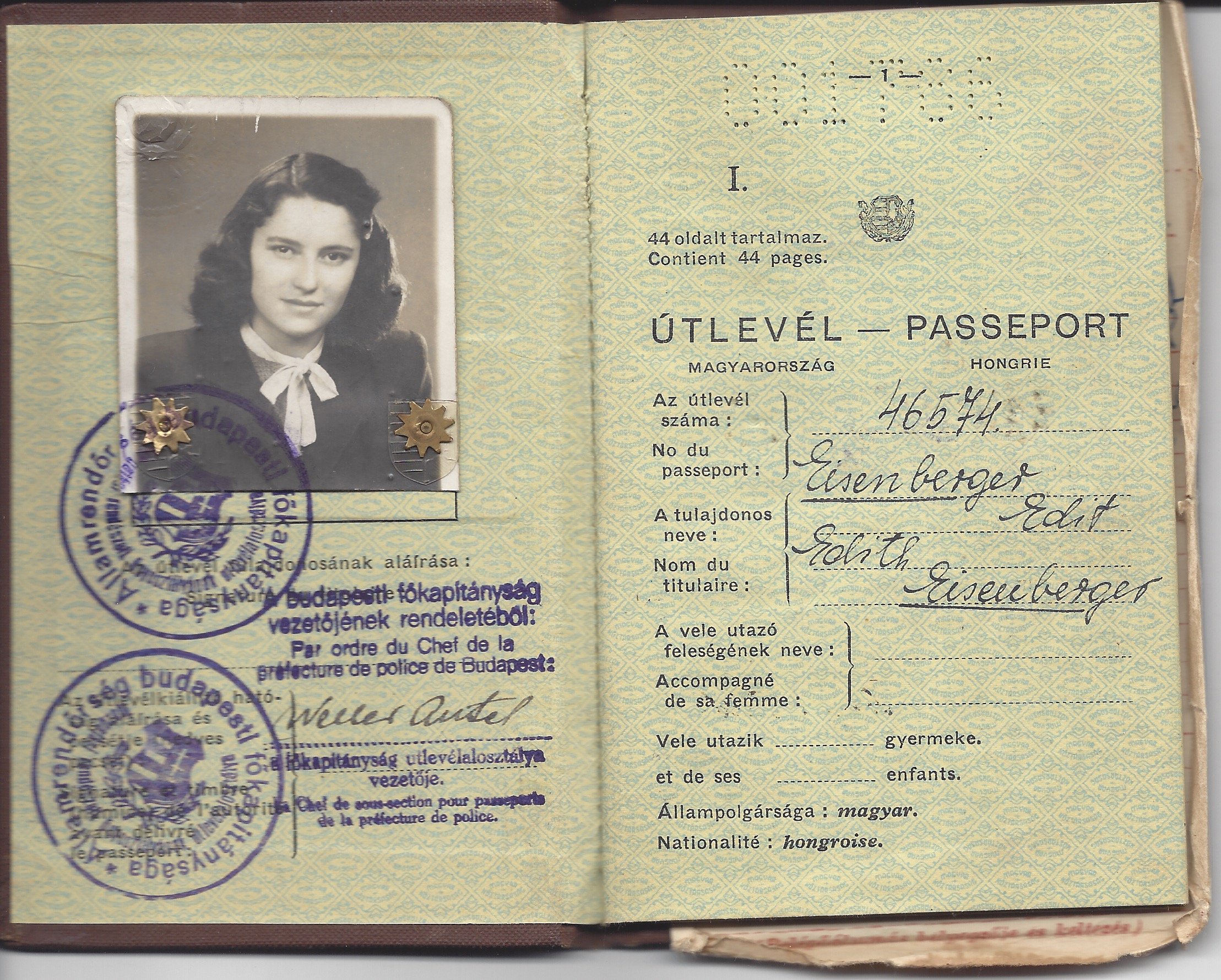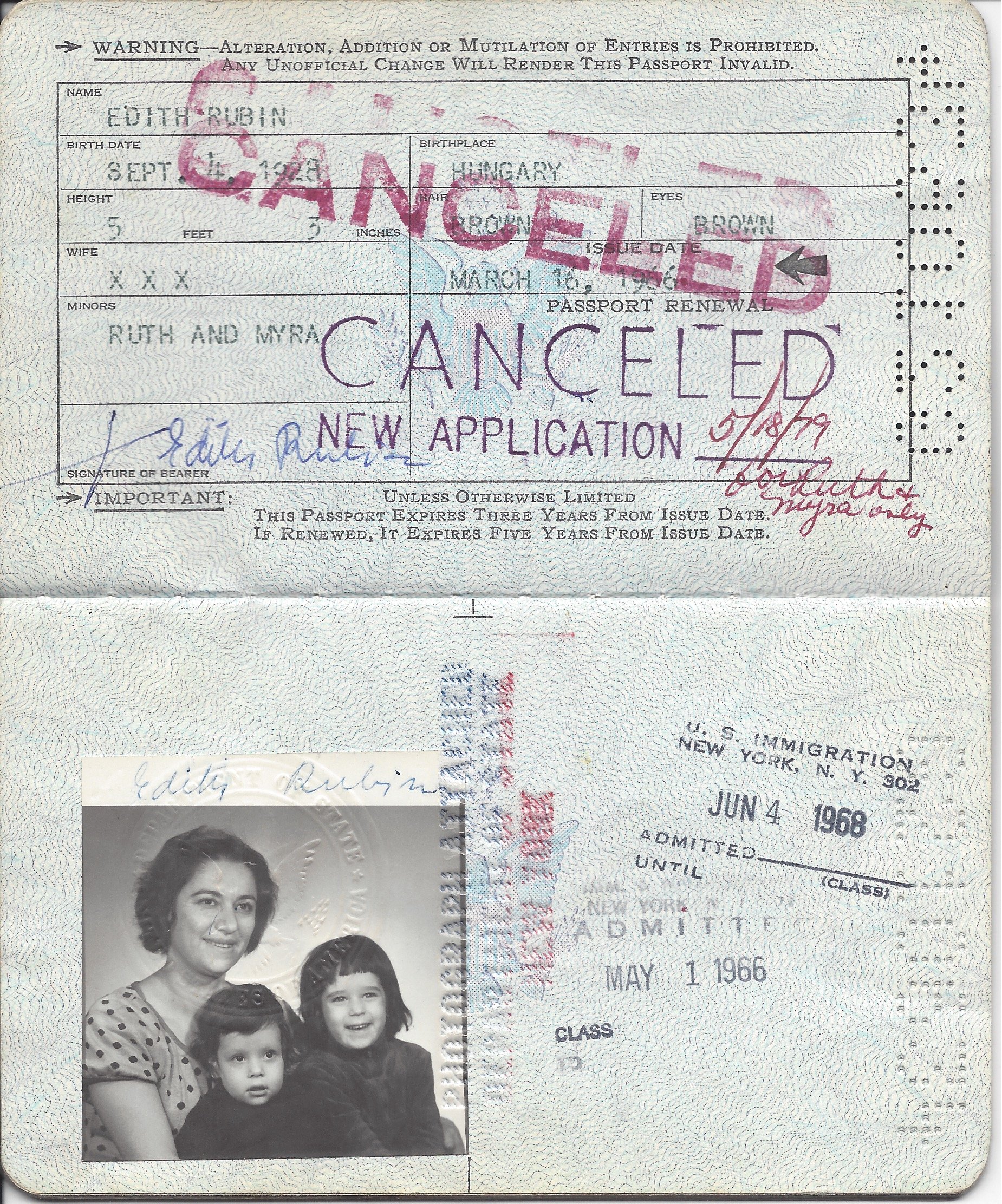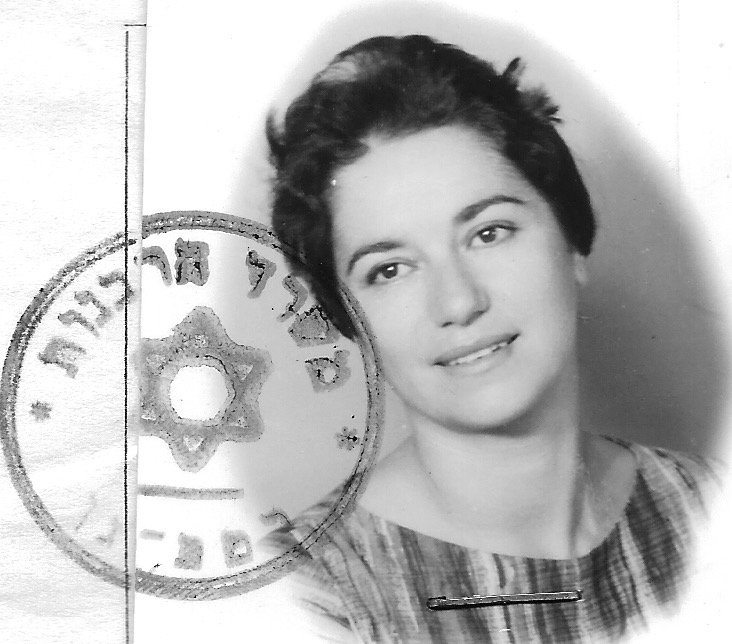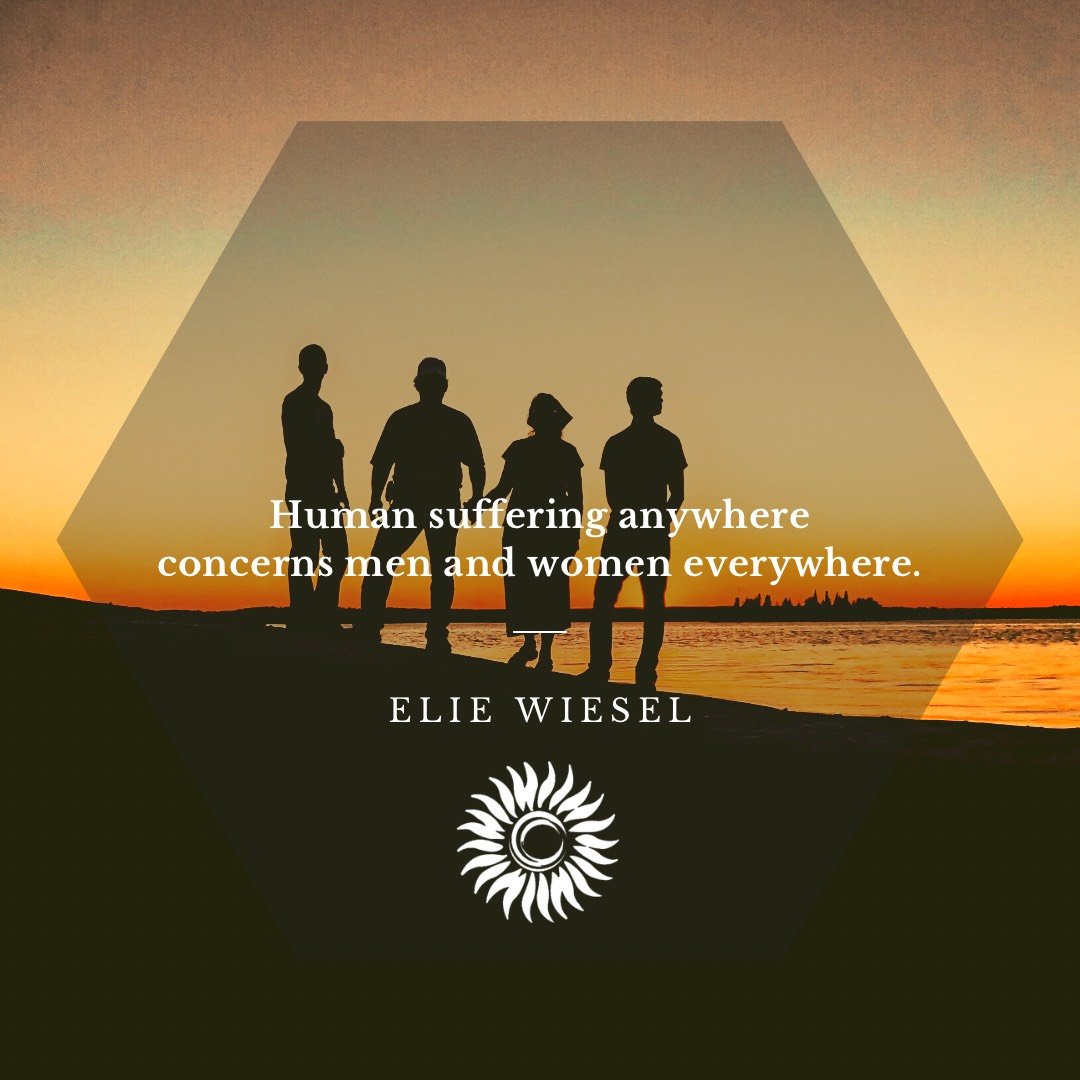Hope for Humanity
I need to be honest and share that I am still in shock over the events in Israel and Gaza. The horrific violence feels too painful for the heart to bear, and for now, there is no end in sight—just terror about what the future holds for both Israelis and Palestinians, as well as the rest of the world.
I have deep roots in Israel. My mother Edith emigrated there in 1948—an orphan who’d barely survived a year in Auschwitz, where both her parents were murdered. After the war, she made her way back to her hometown in Hungary. Penniless, with no prospects, she once again faced virulent antisemitism.
Edith’s Hungarian passport. At 19, this photo is the youngest of her in existence. No photos survived WWII.
In Hungary, my mother was reunited with her younger sister Tova, who’d also managed to survive. Israel was the only place for them to go, the only country where they were welcome.
My mother lived in Israel for twelve years, until she immigrated to the United States in 1960 to marry my father. But my aunt and her family still lived in Israel, so from the time I was three years old, until my aunt died when I was a teenager, we visited every year.
My first memory of being in Israel as a little girl is still crystal clear. All of us—my parents and sister, my aunt and her husband and their two children—were standing on the sidewalk as we watched a military parade. Trucks and tanks rolled past me, and groups of soldiers, both men and women, marched proudly down the street. When I looked over at my mother, I saw that her eyes were glued to the procession while tears streamed down her face.
Once the parade passed, I turned to my mother and asked why she was so sad. I had never seen her cry like that before. She told me that her tears were actually ones of joy. She explained that when she was growing up in Hungary, she was made to feel ashamed of being Jewish. She never had a sense of pride. And when the Nazis came to round up the Jews in her hometown, they all went passively without a fight, as their Hungarian neighbors threw stones at them while laughing and jeering. Seeing so much dignity and strength in the young Jewish soldiers gave my mother a sense of empowerment she’d never experienced before. It healed parts of her heart and soul that she hadn’t even known were wounded.
Elie Wiesel—the author of Night who was awarded the Nobel Peace Prize in 1986—was born in September 1928, just like my mother, and they were both taken to Auschwitz from Hungary in May of 1944 at the age of fifteen. Today, I want to share some of his reflections from his book, Open Heart, which was published in 2012, written when he was 82, facing his mortality head on as he prepared for open-heart surgery.
From Open Heart, chapter 17:
“At the time of the liberation of the camps, I remember, we were convinced that after Auschwitz there would be no more wars, no more racism, no more hatred, no more anti-Semitism. We were wrong. This produced a feeling close to despair. For if Auschwitz could not cure mankind of racism, was there any chance of success ever? The fact is, the world has learned nothing. Otherwise, how is one to comprehend the atrocities committed in Cambodia, Rwanda, Bosnia…”
Elie Wiesel
And now I leave you with Elie Wiesel’s reflections excerpted from Open Heart chapter 25, the second to last chapter:
“A CREDO that defines my path:
I belong to a generation that has often felt abandoned by God and betrayed by mankind. And yet, I believe that we must not give up on either.
Was it yesterday—or long ago—that we learned how human beings have been able to attain perfection in cruelty? That for the killers, the torturers, it is normal, thus human, to act inhumanely? Should one therefore turn away from humanity?
The answer, of course, is up to each of us. We must choose between the violence of adults and the smiles of children, between the ugliness of hate and the will to oppose it…
I know—I speak from experience—that even in darkness, it is possible to create light and encourage compassion…
There it is: I still believe in man in spite of man. I believe in language even though it has been wounded, deformed, and perverted by the enemies of mankind. And I continue to cling to words because it is up to us to transform them into instruments of comprehension rather than contempt. It is up to us to choose whether we wish to use them to curse or to heal, to wound or to console…
Illness may diminish me, but it will not destroy me. The body is not eternal, but the idea of the soul is. The brain will be buried, but the memory will survive it.
Such is the miracle: A tale about despair becomes a tale against despair.”
Take a Moment Micro-Meditation
Tiny pauses to be right here, right now can have big results. Visit and bookmark our library of twenty Take a Moment micro-meditations—all under two minutes long—that make taking mindful pauses as easy as possible. We invite you to "Take a Moment" to find the calm that is always within you.





